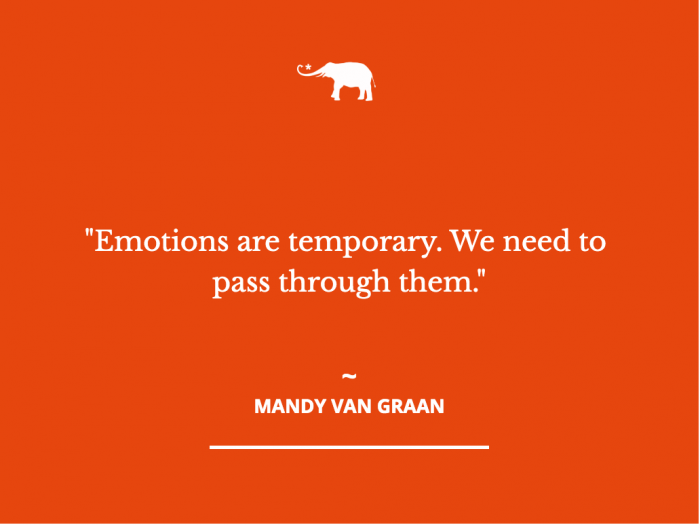Warning! Some f-bombs and other naughty language sprinkled here and there.
The philosopher Aristotle perfectly summed up for me the concept of emotional intelligence.
He related it to anger, which is one of my comfortable go-to emotional states when I’m feeling overwhelmed.
He said, “Anyone can become angry—that is easy. But to be angry with the right person, to the right degree, at the right time, for the right purpose, and in the right way—that is not easy.”
The simple truth is that while we all like to consider ourselves intelligent humans, I am doubting that the more I read the news, emotional intelligence far surpasses our IQs in living our lives with purpose and in our own pursuit of happiness.
I came to the stark realisation that I have the EQ of a small child throwing a tantrum. I wish I could say recently, but it’s been a good few years of knowing and a good few years of trying to emotionally regulate in a way that helps not only myself, but ripples to the ones I love.
My emotions are more often than not an overwhelming barrage of dissatisfaction. But here’s the clincher, folks: this is a good thing.
I cannot emphasise this enough: it is a fucking good thing.
I find people are still hung up on the “good” and “bad” emotional narrative, and I’d like to type a hearty fuck that to that.
There are no good or bad emotions; there are only good and bad reactions to emotions.
If someone breaks your heart and you burn all their shit, that’s a bad reaction to valid emotions of pain and hurt. If you are frustrated about a week spent indoors in virtual meetings and you decide to go for a run, that’s a good reaction to a valid emotion.
See where I’m going with this?
So, how do we raise our emotional intelligence? How do we work it like a muscle until we have six-pack emotional abs?
1. The art of self-awareness.
Self-awareness is truly an art form. We sure as fuck aren’t born with it, and we sure as fuck have blind spots.
It’s a daily practice. And with anything emotional, we can’t get better at regulating until we know what the emotions are and what they are trying to tell us.
There are so many of us who lack true and genuine self-awareness, partly because our ego is a constant roar, and partly because we will do anything to avoid the uncomfortable.
Learn to navigate the uncomfortable spaces; get comfortable with being uncomfortable.
Self-awareness essentially boils down to three levels of understanding ourselves and our behaviour:
>> What are you doing?
>> How is it making you feel? Remember, brutal honesty is your ally.
>> What is the blind spot?
Understanding is everything.
Be careful with labelling theatrically. If your emotion is sadness, that’s different to depression; if your emotion is irritation, that is different to being livid. Words are powerful and assigning them to our emotions should be done with clarity and care for ourselves.
Admittedly, the third question is the hardest part in the understanding process; that’s where our soul tribe comes in. Surround yourself with people who give it to you straight—no sugarcoating bullshit.
I promise you that most of the time, we’re missing something. The people who know us best, the ones we trust, will be able to provide some clarity when we can’t hear our soul’s whispering over the noise of our ego.
2. Channel your emotions.
Sounds like something a spiritual guru would say while smiling at you all Zen-like, immediately triggering annoyance. People who are slaves to their emotions (*points at self*) believe that control is the way to deal with emotions.
You cannot control your emotions, you can only react to them.
The emotion is the signal that something is either fucked up or something is good. Once we identify the emotion and understand it, we then get to decide if it’s important (and the best course of action).
If you feel miserable and spend eight hours binge-watching series, that emotion is only going to heighten in intensity. If you are miserable, meet up with a friend, have a few good laughs, get fucking connected, and change your scenery for a few hours—that emotion is going to dissipate.
Anger is another prime example. Sometimes we channel anger in destructive ways by hurting other people. If we channel it into doing something we consider constructive (write, read, crochet—if that’s your thing), it will dissipate.
Psychologists actually refer to this as “goal-directed behaviour.” In other words, getting our shit together.
Emotions are temporary. We need to pass through them. How we pass through them will help either heighten their power over us or allow us to process and release.
3. Your emotions and your values.
I was once asked what my values were, and I came up with a mouth full of teeth and a spurred desire to establish (in my case, write down, which always helps) my values.
There are a ton of them, but a few that are settled into my core are connection, kindness, honesty, loyalty, creativity, respect, personal development, and travelling. My core values are centred around being a genuine and kind human, engaging with genuine and kind humans, and having meaningful experiences.
Emotions and values are fused together.
If we spend time with someone who doesn’t reflect our core values, our emotions are going to be the dubbed “shitty” ones; if we spend time with people who reflect our core values, our emotions are going to be the dubbed “good” ones.
The same applies to what we are doing. If we are constantly doing things that don’t nurture what we hold dear to our heart and soul, our emotions will signal to us that something is wrong, and we best get back into our “goal-directed behaviour.”
It is so simple, yet so complex. Particularly if we are a poor emotional regulator, but the beauty of our humanness is developing the skills we need to live our lives wholeheartedly.
4. Create healthier relationships by recognising the emotions of others.
The list so far has been centred around the self, but as social creatures, a big part of developing emotional intelligence is our ability to foster healthy relationships in our lives. All healthy relationships—romantic, familial, friendships—are maintained with the recognition and respect of one another’s needs.
How do we do this? When we can accurately identify, not only our own emotions and what they are trying to tell us, but also recognising them in others. The phrase we all cringe to hear comes to mind, “It’s not all about you!” and damn it, it’s an unadulterated truth.
Listen, empathise, and probably the most uncomfortable for us all, be vulnerable.
Meet yourself and others deeply, friends; it’s the only way to keep yourself emotionally healthy.
~
AUTHOR: AMANDA VAN GRAAN
IMAGE: SORRYLINES.ART/INSTAGRAM


Read 14 comments and reply